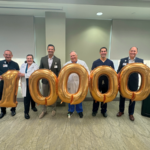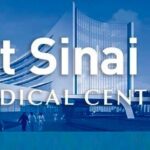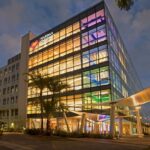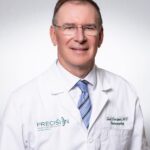In recognition of World Stroke Day, the Marcus Neuroscience Institute (MNI) at Boca Raton Regional Hospital (BRRH) will be hosting a special event on Monday, October 29 from 10:00 a.m. to 2:00 p.m. to help spread awareness and kick off its initiative to train 5,000 members of the community on the signs and symptoms of stroke.
The World Stroke Day event will offer health screenings for stroke risk and education sessions led by MNI medical staff. In addition, attendees will have the opportunity to tour a Mobile Stroke Unit. The education sessions will focus on recognizing the early signs and symptoms of stroke using the B.E. F.A.S.T. technique. The B.E. F.A.S.T. acronym (Balance, Eyes, Face, Arms, Speech and Time) is a simple way to remember the necessary steps in identifying a stroke and providing immediate assistance.
“As a leader in stroke treatment, our Hospital has a responsibility to ensure the community is fully educated on understanding the signs of stroke and knows what to do if one occurs,” said Brian Snelling, MD, Director of Cerebrovascular & Endovascular Neurosurgery at MNI. “When someone is experiencing a stroke, every minute counts.”
The Honorable Scott Singer, Boca Raton Mayor, will be in attendance to show his support and read a proclamation to further recognize World Stroke Day’s importance to the community.
BRRH is a designated Comprehensive Stroke Center by the Florida Agency for Health Care Administration (AHCA). Boca Regional is one of only 20 AHCA stroke centers in the state of Florida and one of only four in Palm Beach County to receive this designation.
Studies show that hospitals designated as Comprehensive Stroke Centers offer patients the best chance for survival and return to normal life. Mounting research shows that stroke victims receive better treatment and recover with fewer disabilities at such hospitals. For instance, comprehensive stroke center recommendations require round-the-clock neurosurgical staff and the latest technology to swiftly and accurately diagnose and treat acute stroke victims on an emergency basis. They offer access to advanced neuroradiological imaging and therapeutic techniques, which provides the widest range of interventional options to stop and minimize potential damage from a stroke.


























